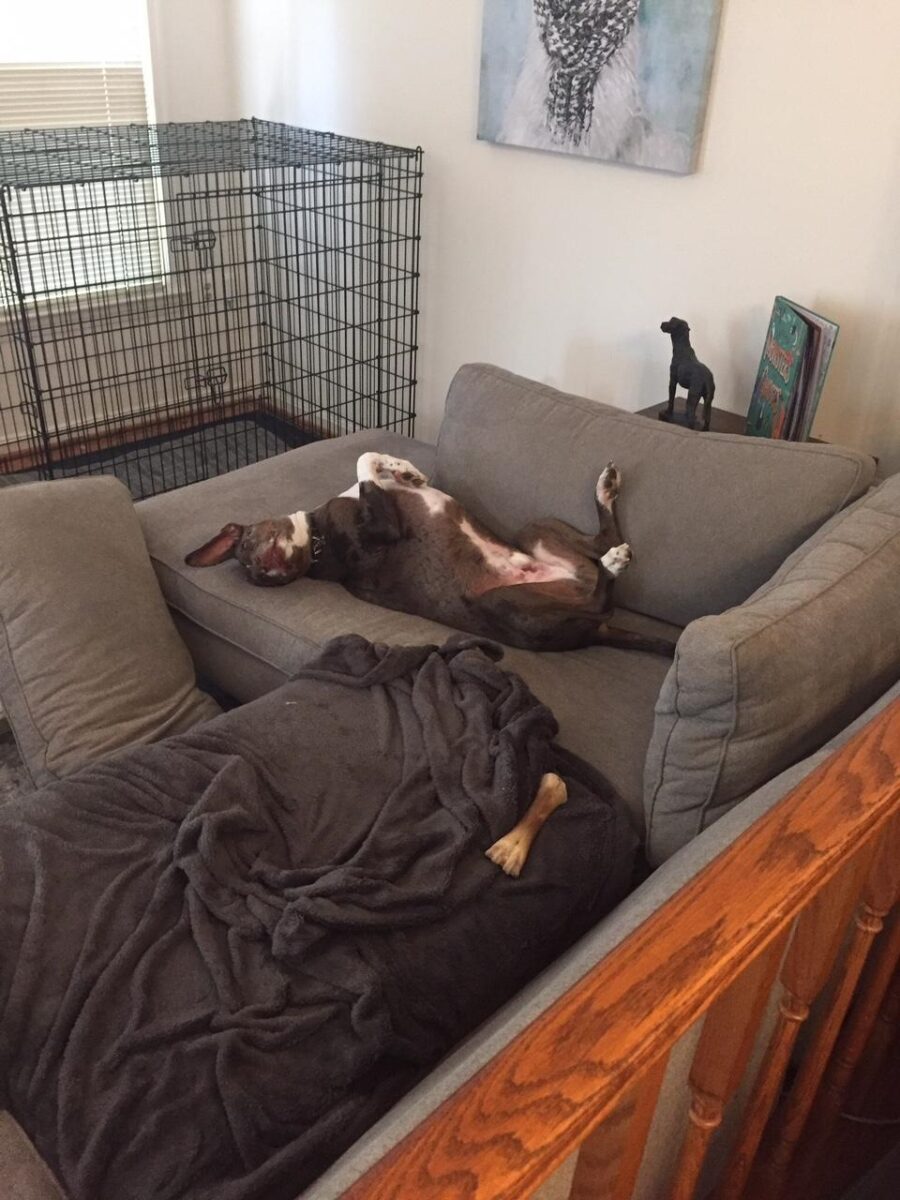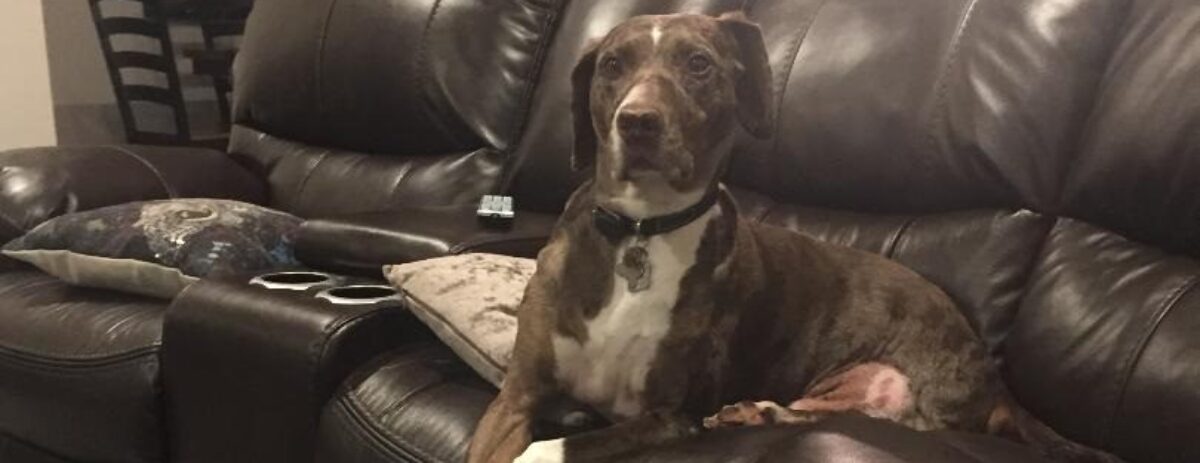On September 15th, Atticus and I set off on an hour long drive to Veterinary Cancer and Surgery Specialist (VCSS for short). VCSS is still observing COVID protocols, so he’d go in without me. While we waited for a tech to come out I saw a doctor (our doctor, it turns out) talking to a lady with a goldendoodle tripawd. That dog was happy and jumping around. I took it as a good sign.
A friendly tech came out, got a brief history on Atticus (they already had vet records and x-rays from our regular vet) and took Atticus in. Atticus is very friendly and brave, but gets very cranky and anxious for blood draws and temperature checks. But he’s very food-motivated, so I sent him in with a bag of Cheddar Jacked Cheez-Its.

After a short while, our new surgical oncologist, Dr. Perry, came out with Atticus. I immediately liked Dr. Perry. He told me that Atticus was in great shape, and a good candidate for surgery. His chest x-rays were clear, his bloodwork was good, and despite his age, the joints on the other three legs looked good. Surgery and chemotherapy
My three big questions were:
What would recovery from amputation be like?
The Answer: Dogs recover very quickly from amputation, in particular hind leg amputation. Recovery would be about two weeks. Some dogs are moving and mostly recovered in one week. In some dogs you see an immediate improvement, because you are removing a source of extreme pain.
If we didn’t amputate, how would the disease progress?
The Answer: his pain would get progressively harder and harder to control. Likely we would put him to sleep when it became unmanageable. He still had some good bone substance left, but the risk of pathological fracture would increase.
How would chemo affect his quality of life?
The Answer: Dogs tend tolerate chemo much better than people. Some get lethargic, lost their appetite, have nausea, vomiting or diarrhea.
I asked about doing more to stage the cancer. I didn’t want to put Atticus through the surgery if the cancer had already metastasized and we knew he only had a short time left. Dr. Perry recommended an abdominal ultrasound. With the ultrasound, we could find out the same things as a CAT scan, but it would be much cheaper.
After I asked all my questions, I told Dr. Perry I wanted to move forward with the ultrasound, and barring finding something there, the surgery and chemo. After he went in, one of the surgery techs came out with the estimate. Gulp.
The quote was actually close to what I expected (I’d already gotten a price range from someone on my Catahoula Facebook page ). I guess Portland is technically considered a high cost of living locale. Of course, before Portland we lived in the DC Metro area, which makes Portland seem cheap. I shudder to think of the cost of this whole deal in DC. In the interest of full disclosure, our quote for surgery and 4-6 rounds of chemo was a low/high range of $6700 – $10,000.
I have a hard and fast rule of not bargain shopping for veterinary care. I really believe what you pay for. I fully prepared myself to pay the high range. And I’m really grateful we had the means to pay that bill, and that cost wasn’t a limiting factor.
I left VCSS with our ultrasound scheduled for the next week on Thursday, and surgery tentatively scheduled for the Monday after that.
